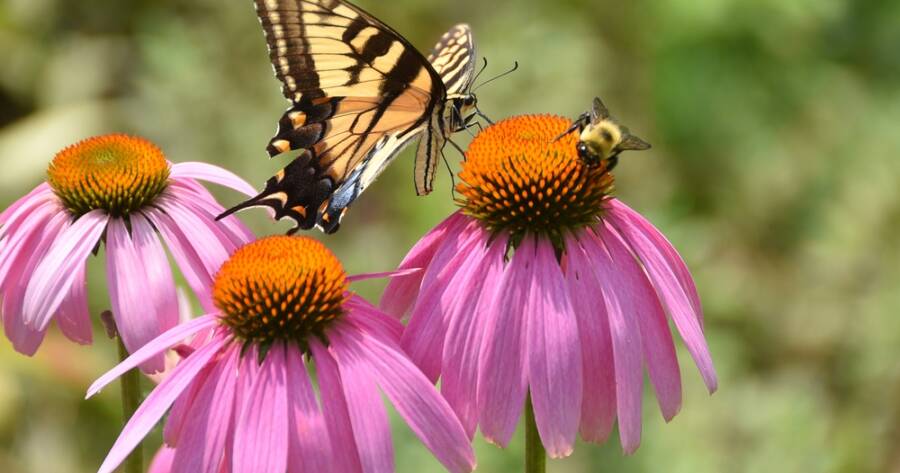You don’t need a sprawling countryside to enjoy nature up close. With the right elements, your own backyard can become a thriving wildlife sanctuary buzzing with bees, fluttering with butterflies, and alive with birdsong. Creating a space that welcomes pollinators and feathered friends not only adds beauty and joy to your home but also plays a critical role in supporting biodiversity and local ecosystems. Understand how to turn your outdoor space into a welcoming refuge for birds, bees, and butterflies.
Start with Native Plants
The foundation of any wildlife-friendly yard is a variety of native plants. These species are adapted to your region’s climate and soil, making them more resilient and beneficial to local wildlife.
Native flowers provide nectar for pollinators, while native trees and shrubs offer shelter and nesting spots for birds. Plants like milkweed (essential for monarch butterflies), coneflowers, black-eyed Susans, and goldenrod attract butterflies and bees alike. Group similar plants together to create a visual target for pollinators, making it easier for them to find and feed.
Skip the Chemicals
Avoid using pesticides, herbicides, and chemical fertilizers. These substances are harmful to beneficial insects like bees and butterflies, as well as birds that feed on insects or seeds.
Instead, go organic with compost, mulch, and natural pest-control methods like companion planting. Let your garden develop its own balance of predators and prey to encourage a healthier environment for all species.
Provide Fresh Water
Birds, bees, and butterflies all need a reliable water source, especially during hot or dry months. A birdbath with gently sloping sides or shallow water dishes placed at different heights will attract a wide variety of visitors.
To help bees and butterflies, add flat stones or pebbles to your water features so they can safely land and drink without drowning. Clean and refill water sources regularly to prevent mosquitoes and ensure fresh hydration.
Offer Shelter and Nesting Spots
Shelter is just as important as food and water. Trees, shrubs, and brush piles provide birds with places to nest, hide from predators, and rest. Dense hedges and evergreen plants can be especially useful during colder months.
For bees, consider installing bee hotels, wooden blocks or bundles of hollow stems where solitary bees can lay their eggs. Butterflies benefit from having places to rest, like flat rocks in the sun and leafy vegetation for protection from wind and rain.
Include a Variety of Blooms
A vibrant wildlife garden features a mix of plants that bloom throughout the year, ensuring a steady food supply for pollinators. Aim to include early-spring bloomers (like crocus and lavender), summer flowers (like bee balm and yarrow), and fall favorites (like aster and goldenrod).
Multiple flower shapes and colors will attract a wider range of pollinators. Bright, flat flowers appeal to butterflies, while tubular blooms are perfect for hummingbirds.
Add Feeding Stations and Nest Boxes
Bird feeders filled with black oil sunflower seeds, suet, or nectar can supplement natural food sources, especially in winter. Be sure to clean feeders regularly to prevent the spread of disease.
You can also install birdhouses to attract cavity-nesting birds like chickadees or wrens. Make sure they are placed away from heavy foot traffic and out of reach of predators like cats or raccoons.
Keep It Natural and Wild
Allowing part of your yard to grow a little wild can have big benefits. Leave some leaf litter on the ground, allow seed heads to remain on plants through fall and winter, and reduce how often you mow. These small actions create habitat and food sources for a wide range of creatures.
Watch and Enjoy
Once your backyard sanctuary is in place, take time to observe and enjoy. Keep a journal of bird species, photograph butterflies, or simply sit and listen to the buzzing and chirping that fills the air. It is a peaceful reminder that when you make space for nature, nature returns the favor.

